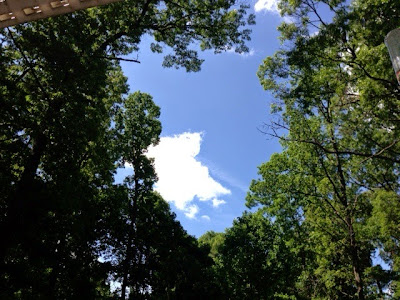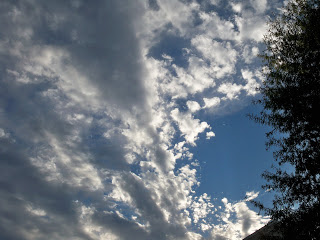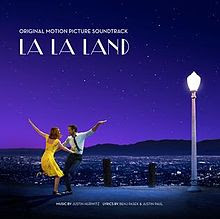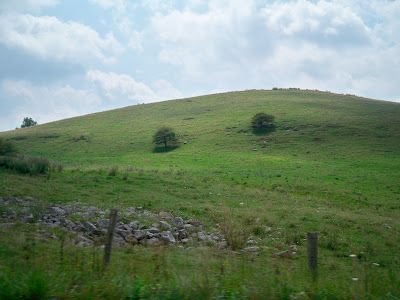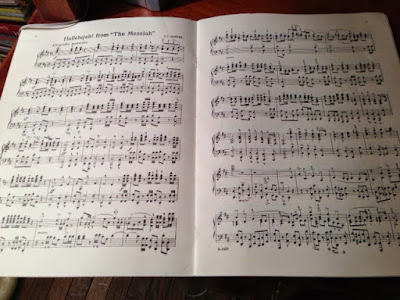Sky Bridge
A late walk last night, strolling through sunset into nightfall. Crickets were chirping, bats were swooping and down at the corner the second-bloom honeysuckle was wafting its delicious scent over the distinctive odor of the manure fertilizer some homeowner had just spread.
We aren’t used to barnyard scents here in the suburbs. A few miles down the road is a little farm park where I used to take the children when they were young. There are plenty of pungent odors there.
But here it’s a sanitized suburban aroma.
But I was soon past it and on my way back. The day was darkening, and I couldn’t keep my eyes off the sky. Maybe because it was the lightest thing to look at — or maybe because I was listening to Chabrier on my iPod and thinking about Dad playing the same music decades ago.
What a link music becomes, a bridge between the living and the dead.




